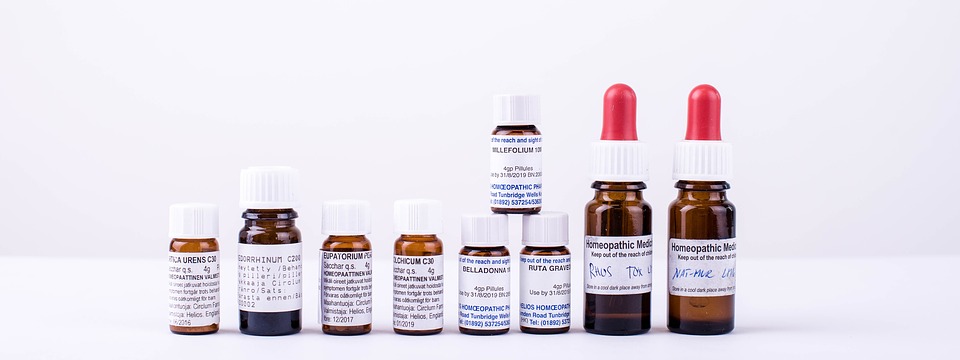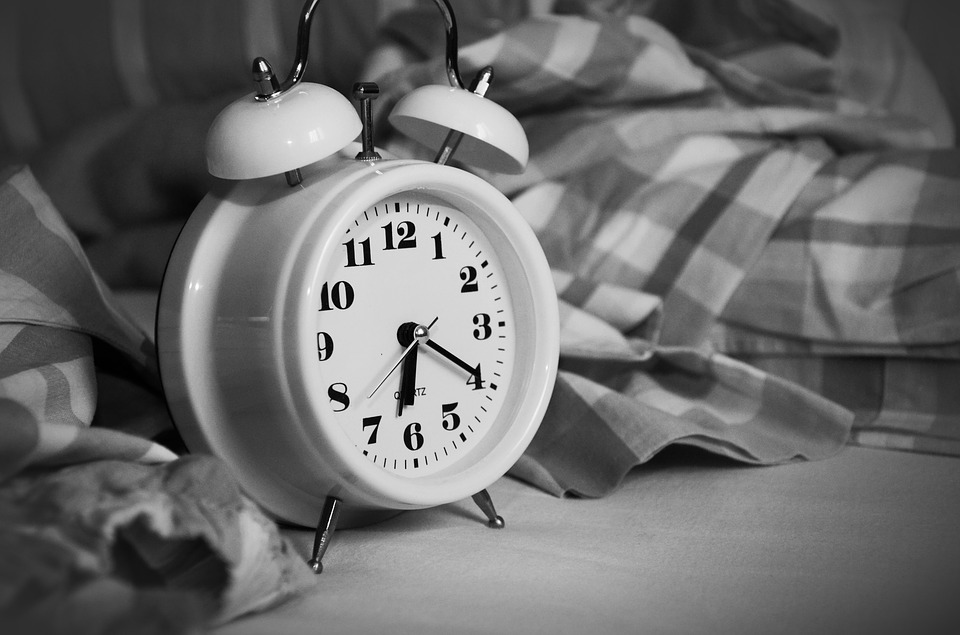This is Part 6 of my article series How I Overcame Insomnia in 10 Steps.
I’ve previously written about supplements on this blog, but not focused specifically on vitamins and minerals. This article goes into depth on all the vitamins and supplements I take, the research I have done, and which ones are genuinely worth taking versus those which are a waste of money.
Why are vitamins and minerals relevant to sleep problems and insomnia?
First of all, there are some vitamins we may have a deficiency in. Vitamin deficiencies can sometimes manifest as lethargy, lack of energy, low mood and difficulty sleeping. Your sleep problems may be caused or exacerbated by one or more vitamin deficiencies. So a great way of ruling that out is by keeping up a daily vitamin regimen to ensure that it’s not a lack of nutrients keeping you up at night.
Secondly, our bodies function better all round when we are better nourished. And sometimes, a knock on effect of insomnia can be that we don’t eat very well. We might be too tired to cook, or crave junk food. So taking supplements is one small and easy way we can ensure our bodies are well nourished despite our sometimes inadequate diets.
I have been pleasantly surprised over the past year I’ve been taking these supplements at how much it has actually affected my day to day health, mood and level of pain. My overall energy levels have improved dramatically, my joint pain has diminished, my skin is much better (less redness, fewer spots), and of course my sleep has improved.
This article sets out the five key vitamin and mineral supplements I take every day, followed by a list of the most important vitamins and minerals, and my research on each one.
I cover what each vitamin or mineral is responsible for, what happens if we don’t have enough (or if we have too much), and how to get the best form of it in our diet and via supplement. I’ve linked relevant evidence articles for each one as well.
Bioavailability
A word on bioavailability: certain supplements are more bioavailable than others. Those which are often come with a larger price tag. What this basically means is that certain forms of the vitamin are much easier for the body to digest, usually the closest form to how it would be found in dietary sources.
A good example of this are the chalky tablets containing vitamin D. This vitamin is fat-soluble so even if you swallow those tablets once a day, it is unlikely that your body will actually be able to absorb any of the vitamin D from them. A more bioavailable form comes in oil capsules or oil based liquids.
So it is definitely worth looking for the more bioavailable forms. However….
Cost: Pros and Cons
It is worth balancing the amount you can afford to spend on vitamins and supplements with how effective and bioavailable they are. Some vitamins and supplements can be really quite expensive. Are they really worth it?
Honestly, some of them are worth it, and some are not. For example, with our Vitamin D example above, it is worth spending the extra money to get the bioavailable oil based forms because the chalky ones are pretty much useless. It is worth taking vitamin D since the majority of us are actually deficient, and it can affect our physical and mental health. So yes, that one is worth spending on.
But super-duper bioavailable liposomal liquid vitamin C? Probably not. Vitamin C is very easy to cover in a normal diet. The supplements are very cheap compared to others, so you may think you might as well take them anyway. But bear in mind that any vitamin C you take over the RDA will just be excreted in your urine. So really, it is not really worth buying Vitamin C supplements in my opinion.
I’ve put these considerations and pros and cons in each section so that you can make up your own mind about whether you think it’s worth spending the money.

Complete Multivitamin Regimen
Most pre-prepared multivitamins contain odd amounts of vitamins and minerals, probably dependent on cost. I always find they have far too much of the ones I’m not concerned about, and far too little of the ones I really want to prioritise.
So I took matters into my own hands and developed my own regimen of supplements ensuring I followed nutritional advice and focusing on the vitamins and minerals most useful to the body.
The following is the complete regimen I take daily. I have calculated that this regimen covers all the essential vitamins and minerals I actually need, in the right amounts.
I’m not a doctor, so before taking any supplements I have to advise you to speak to your doctor.
- Cod Liver Oil (or Vegan Vit A & Vegan Omega 3)
- Vitamin A: 67% (the rest from food)
- Vitamin D: 50% (see below)
- Vitamin E: 45% (the rest from food)
- Omega 3: 83% (the rest from food)
- Vitamin D3 and K2
- Vitamin D: 125%
- Vitamin K: 100%
- Calcium and Magnesium
- Calcium: 77% (the rest from food)
- Magnesium: 119%
- Vitamin B12
- Collagen & Hyaluronic Acid (or Vegan Collagen)
- Collagen: 100%
- Hyaluronic Acid: 100%
These are the five supplements I take every day, to make sure that even if my diet is not on top form, at least I know I’m still getting all the nutrients I need to keep my body functioning at its best.

Vitamin A
Most people who eat meat or fish will get enough Vitamin A from their normal diets. It is found in particularly high concentrations in liver and liver products such as pâté, so if you consume offal or pâté regularly you will not need to supplement.
It is also worth bearing in mind that Vitamin A is one of the few vitamins that can have negative side effects if you consume too much. So if you do eat meat, particularly organ meat, it is probably best not to supplement Vitamin A.
However if you are vegetarian or eat meat rarely, supplementing Vitamin A is probably sensible. Just don’t be tempted to take large doses over the RDA.
Overdosing on Vitamin A over a long period of time can contribute to loss of bone density, increasing the risk of osteoporosis and fragile bones. Overdosing Vitamin A can also harm an unborn baby, so speak to a doctor before supplementing if you are pregnant. Older adults should also consult a doctor before supplementing vitamin A in case you are at risk of osteoporosis.
Vitamin A boosts the immune system, aids vision (particularly in low light) and strengthens skin and mucus membranes inside the nose and throat for example.
Evidence:
https://www.nhs.uk/conditions/vitamins-and-minerals/vitamin-a/
Recommended Daily Amount:
- 600mcg for women
- 700mcg for men
- can overdose above 1500mcg
Food Sources:
- meat, particularly liver and liver pâté
- oily fish
- dairy such as milk, yogurt and cheese
- plant based, red and orange vegetables
- red and orange peppers, sweet potatoes, squash
Bioavailable Supplements:
- cod liver oil is the most bioavailable form
- vegan oil based pro-vitamin A (beta-carotin)
Many cod liver oil supplements contain vitamins A, D and E combined. When looking for a good cod liver oil supplement, I would recommend buying capsules rather than pure liquid, since they are easier and less unpleasant to take. They do tend to be more expensive by volume than the liquid, but personally I am more likely to continue taking them if they are capsules as I dislike swallowing oil.
Another factor about cod liver oil: buy the best you can afford. Cod liver oil is better quality than generic “fish oil”. Cold pressed oil is better quality than heat treated as the heat can destroy some of the nutrients. But if you can’t afford or find cold pressed, heat treated is better than nothing.
These are the ones I take: Carlson Cod Liver Oil 1000mg. One a day is enough to cover vitamins A, D, E and omega oils. If you are vegetarian, there are also plant based vitamin A supplements available.
B Vitamins
There is not just one Vitamin B. There are a complex of vitamins under the “B” umbrella, most of which are readily available in the average diet. Some are in fact produced in the gut (including B6 and B7) which means we do not need to get them from food.
Providing your diet contains meat, fish, eggs or dairy, and nuts, grains and seeds, you should have all the B vitamins you need. If you are vegetarian or vegan, you should take a Viamin B complex supplement.
The two B vitamins most worth focusing on are B9 (folate) and B12. This is because these are the two we are most likely to be deficient in, and are most likely to cause disease in those who are deficient.
B9 or folate/folic acid is most important when trying to conceive, as a deficiency in B9 can increase the risk of neural tube defects in the baby such as spina bifida. B9 is also involved in red blood cell production, and deficiency can cause folate anaemia. Most flour, bread and breakfast cereals are in fact fortified with B9 folate, so unless you are actively trying to conceive I would not worry too much about supplementing B9 or folic acid.
B12 is involved in oxygen transportation and red blood cell production as well, and deficiency can cause another type of anaemia called pernicious anaemia, which can mimic other illnesses like chronic fatigue syndrome. So it is important to supplement this vitamin if you have any symptoms of anaemia or fatigue, or if you are vegetarian or vegan.
Evidence:
https://www.nhs.uk/conditions/vitamins-and-minerals/vitamin-b/
Recommended Daily Amount:
- 200mcg B9 folate
- 1000mcg B12
Food Sources:
Bioavailable Supplements:
- methylcobalamin is bioavailable, retained longer
- cyanocobalamin is synthetic, not preferred
- lozenges or sublingual tablets are the best
I take Jarrow Vitamin B12 Supplement as it is methylcobalamin based, and can be dissolved slowly under the tongue. It’s a little chalky but has a pleasant lemony flavour.
Vitamin C
As mentioned in my introduction above, I don’t generally take Vitamin C as it is widely available in the average diet.
Vitamin C is involved in a variety of body functions including wound healing, immunity, skin, blood vessels, bones and cartilage. Deficiency can lead to scurvy, but is very uncommon these days, because it is so easy to get enough in the diet. Just a quarter cup of yellow or red pepper, or a cup of broccoli, or one large orange, provides enough vitamin C for the day.
Another important function of Vitamin C is that it improves absorption of other vitamins and minerals, particularly calcium, zinc and iron. It also decreases platelets “stickiness” in the blood, which reduces the risk of blood clots and stroke.
Evidence:
https://www.nhs.uk/conditions/vitamins-and-minerals/vitamin-c/
https://pubmed.ncbi.nlm.nih.gov/22429343/
Recommended Daily Amount:
- NHS recommends 40mg per day
- megadosing 1000mg has been shown to help fight off infections, so supplement when ill
Works Together With:
- zinc to fight infection
- inhibits B12 absorption so take separately
Food Sources:
- citrus fruits and berries, bell peppers, green veg
Bioavailable Supplements:
- cheap dextrose supplements are fine
- ascorbic acid is highly bioavailable anyway
- expensive liposomal vitamin C is completely unnecessary
The only time I would consider supplementing Vitamin C is when I feel a cold or infection coming on. As the second source above shows, there have been numerous studies indicating that high doses of Vitamin C at 1000mg or more can help fight infections short term, but there are no long term benefits to taking vitamin C every day.
For this I always use the cheap round chewable or soluble tablets easily available in supermarkets. The only consideration you might want to bear in mind is that some of them contain artificial sweeteners. Personally I would rather take my chances with real sugar or dextrose than aspartame, so it might be worth keeping an eye out for that. Otherwise, if you are keen to avoid sugar altogether you can obtain pure ascorbic acid in powder form, without sugar or sweeteners, which you can stir into drinks.
Vitamin D
This is one that everyone should be taking. Vitamin D is available in some foods, especially oily fish and eggs, but really the best source of Vitamin D is sunlight. When our skin is exposed to sunlight we produce Vitamin D. Unfortunately, those of us who live further from the equator tend to experience less sunlight, particularly in the winter months, and many of us are chronically deficient in Vitamin D.
It is thought that many of the symptoms of Seasonal Affective Disorder are actually Vitamin D deficiency, including low mood, lethargy and susceptibility to illness and infection. The elderly and people with darker skin are particularly prone to Vitamin D deficiency.
Vitamin D has a number of important functions in the body, including regulating calcium levels, strengthening bones and teeth, and improving mood. Deficiency can cause rickets and osteomalacia. Since most food sources are animal products, vegetarians and vegans should also be prioritising Vitamin D supplements.
The way vitamin D works is to ensure there is enough calcium in the blood stream available for the body to use. So as long as you have plenty of calcium available this should not cause any problems.
However if you do not have enough calcium from food, vitamin D can in fact leach calcium from bones and teeth to fulfill the body’s needs. Overdosing Vitamin D can cause calcium build up which could result in kidney stones.
In order to counteract this, you should also take Vitamin K (see below), which strengthens bones and teeth by preventing calcium levels from falling in the bones and by reducing calcium buildup in soft tissues. In addition, you should also take calcium to ensure there is enough available for all the body’s needs.
Recommended Daily Amount:
Works Together With:
- calcium
- phosphate
- Vitamin K
- D increases calcium levels in the blood by aiding absorption (but can leach from bones and organs)
- K prevents it from being leached from bones and muscles, promotes calcification of bones and reduces calcification of soft tissues and organs
- if you’re going to take D, also take K
Food Sources:
- oily fish
- liver
- red meat
- eggs
Bioavailable Supplement:
- D3 is most bioavailable (most are vegetarian)
Evidence:
https://www.nhs.uk/conditions/vitamins-and-minerals/vitamin-d/
https://www.healthline.com/nutrition/vitamin-d-and-vitamin-k
Supplements:
The Cod Liver Oil supplements I recommended above (Carlson) also contain your RDA of Vitamin D, but I also take a separate D and K supplement to ensure I get enough Vitamin K as well, and also a Calcium and Magnesium supplement which also contains a small amount of Vitamin D as well.
This is a good D & K supplement, which is also vegetarian friendly, if you’re not taking cod liver oil:
Vitamin E
It’s unlikely that you will need to supplement Vitamin E, as it is found in most plant and seed oils including olive oil, rapeseed, sunflower, soya and corn oils, so most people get their daily amount simply from cooking oils. Our bodies can also store Vitamin E so you don’t need to ensure it is in your diet every single day.
Additionally, cod liver oil often contains Vitamin E as well, and many of the oils used as a base for other oil based supplements such as Vitamin A or D are also Vitamin E containing oils.
Vitamin E helps to maintain healthy eyes and skin and strengthens the immune system.
Vitamin K
This is NOT potassium, which has the chemical symbol of K. Vitamin K is different! (I know now, but I used to think it was the same thing…!)
I mentioned Vitamin K above, while discussing Vitamin D. It is important to take both D and K together, since they work in tandem to ensure there is enough Calcium available in the body without depleting bones and teeth or building up in organ tissues.
Vitamin K is also involved in blood clotting and wound healing, as well as healing broken bones.
Evidence:
https://www.nhs.uk/conditions/vitamins-and-minerals/vitamin-k/
https://www.healthline.com/nutrition/vitamin-d-and-vitamin-k
Recommended Daily Amount:
- 1mcg per kilo of bodyweight
- for most people this will be somewhere around 60 to 100mcg daily
Works Together With:
- regulates calcium and phosphate in tandem with vitamin D
- D aids absorption and increases calcium blood levels (but can leach from bones)
- K promotes calcification of bones and reduces calcification in soft tissues and organs
Food Sources:
- green leafy vegetables
- grains
- vegetable oils
Bioavailable Supplements
- MK7 is the most bioavailable form
This is the supplement I recommend for Vitamins D and K, and can be taken in addition to cod liver oil or on its own. It’s suitable for vegetarians.
Calcium
As already mentioned, Calcium works alongside Vitamins D and K so it is important to take a supplement of this too, to ensure that enough calcium is available for D and K to work their magic.
As we all know, calcium improves bone density, tooth density and enamel, and prevents rickets and osteomalacia. However it is also a key factor in blood clotting and improves heart strength, and regulates muscle contraction so it is particularly useful for those who like to keep fit.
It’s also worth pointing out that Vitamin C improves absorption of Calcium, but as I’ve already mentioned, most people will have enough Vitamin C for this not to be a problem.
Evidence:
https://www.nhs.uk/conditions/vitamins-and-minerals/calcium/
Recommended Daily Amount:
Works Together With:
- vitamins D and K regulate calcium levels in blood, bones and soft tissues
- magnesium also aids bone health (see below)
- vitamin C aids absorption
Food Sources:
- dairy
- green leafy vegetables
- almonds
Bioavailable Supplements:
- calcium citrate is the most bioavailable form
I take Calcium and Magnesium 1000mg, which also contains a small amount of zinc.
Collagen
I did some research into collagen after discovering that my shark cartilage chondroitin was proven by numerous studies to make no difference to joint health. Instead, the evidence points to collagen as being much more effective at maintaining healthy joints, cartilage and connective tissue.
Collagen has lots of functions in the body, including strengthening bone density, joint health, the heart and muscles, skin, nails and hair. Another substance we produce naturally is Hyaluronic Acid, which helps wound healing and lubricates joints. Collagen and Hyaluronic Acid together are much better for joints and skin than any amount of chondroitin.
In fact I will share this story about my own joints, despite it not being particularly relevant to sleep issues, you may find it interesting. I have had slight joint pain for some years, nothing too distressing or alarming, but ever since I hit my mid thirties I began to get aching knees and hips, particularly after long walks (which I love). I also had two unpleasant bouts of plantar fasciitis which involves inflammation of the ligaments in the foot.
Since I have been taking collagen on a daily basis, I have not experienced the aches and pains I was feeling before. I’ve been taking my current daily vitamin regimen for a year now, and I added collagen and hyaluronic acid approximately 8 months ago and I rarely get any joint pain now.
Evidence:
https://www.healthline.com/nutrition/collagen-benefits
https://www.healthline.com/nutrition/hyaluronic-acid-benefits
Recommended Daily Amount:
- collagen 8-12mg per day
- hyaluronic acid 120-240mg per day
Bioavailable Supplements:
- marine collagen is most bioavailable
- although any hydrolysed/powdered collagen will work
Supplement:
Now this stuff is not cheap. This is the one I use as it also contains hyaluronic acid. There are cheaper varieties, and capsules rather than powder, which are probably less unpleasant to take! But due to my joint issues I really want to make sure I’m getting the best I can afford, so I take 2 scoops of collagen powder a day.
I mix a scoop with a very small drop of water, mix it to a paste, and then add a splash of milk. Too much liquid and i find it a bit lumpy. Some people add it to smoothies, so if you’re a smoothie drinker you probably won’t notice a scoop of collagen mixed in with your fruit. Despite being marine sourced, it does not taste fishy at all.
There is a vegan collagen supplement, but I cannot vouch for how good it is, as I haven’t tried it.
Magnesium
Magnesium is another mineral that helps strengthen bones, and as it works together with Calcium, many supplements include Magnesium as well. It’s also a really beneficial one for improving sleep and low mood. It’s anti-inflammatory and lowers blood pressure, and helps to metabolise energy from food.
Evidence:
https://www.nhs.uk/conditions/vitamins-and-minerals/others/
Daily Amount:
Works Together With:
- calcium and zinc aid absorption
Food Sources:
- nuts and grains
- spinach
- bread
Bioavailable Supplement:
- citrate form is more bioavailable
As recommended in the Calcium section, this is a good supplement for both calcium and magnesium.
Omega Oils (3, 6 and 9)
Omega oils contain the essential fatty acids our bodies cannot produce, so we need to obtain them from our food. Fortunately, these oils are all very easy to obtain in an average balanced diet.
- Omega 3 oils are polyunsaturated animal fats (mainly fish oils)
- Omega 6 oils are polyunsaturated plant fats (mostly sunflower, corn and rapeseed oils)
- Omega 9 oils are monounsaturated plant fats (olive and avocado oils)
The relationship between the various Omega oils requires a bit of explanation, but it is not complicated. Many supplements tout that they contain the “correct” ratios of Omega 3, 6 and 9.
Basically, the ratio issue is about balancing our intake of these fats so that we get as close to 1:1 as possible. This is harder than it sounds.
For decades we have been told that polyunsaturated plant fats (Omega 6 oils) are better for us than the saturated animal fats we had been eating before that. So we all dutifully switched to “healthier” plant based margarines and cooking oils.
However it appears that we only got half of the story. Yes, there are aspects of Omega 6 oils that are better for us than saturated animals fats, they contain less calories, don’t clog our arteries, etc.
But they are inflammatory compared to Omega 3 oils. Omega 3 oils, on the other hand reduce inflammation, so eating more of them would be beneficial. It is thought that the average western diet eats Omega 6 plant oils in around a 16:1 ratio to Omega 3 oils (fish oils).
Pre-industrial diets of various populations are estimated to have contained somewhere between 1:4 and 4:1 of Omega 3s and 6s. Either way, they ate far less Omega 6s and far more Omega 3s.
It is very difficult to achieve a 1:1 ratio of Omega 3s to 6s, but the goal with a western diet is essentially to eat less Omega 6 plant oils and more Omega 3 fish oils.
Omega 9 oils are not essential, since we can produce the fatty acids they contain in the body. But where they come in is in reducing the amount of Omega 6 oils we consume. Think of Omega 9s as “neutral”.
If we replace some of the Omega 6 oils we use for cooking and salads with Omega 9s instead, we are reducing our overall consumption of Omega 6s. And then, by increasing our Omega 3 consumption by eating more oily fish and taking cod liver oil, we can begin to redress the balance and bring our ratios back down.
What about if you don’t eat fish? There are plant based sources of Omega 3 oils, including hemp seed, brassicas, algae and walnuts. So don’t worry, you can still boost your Omega 3 consumption even if you are vegetarian or vegan.
Evidence:
https://www.healthline.com/nutrition/omega-3-6-9-overview
https://www.healthline.com/nutrition/optimize-omega-6-omega-3-ratio
https://www.healthline.com/nutrition/7-plant-sources-of-omega-3s
Recommended Daily Amount:
Bioavailable Supplements:
- extra virgin cod liver oil (not generic fish oil)
- cold pressed (heat damages the molecules)
The Carlson Cod Liver Oil supplements I recommend have around 250mg of Omega 3 fish oil, and the rest I get from consuming fish regularly.
There is also a good vegan Omega 3 supplement that contains around 600mg of Omega 3 oils from plant sources (algal oils).
Summary
This has been an in-depth look at the most important vitamins, minerals and supplements that are useful for general health and nutrition but also specifically beneficial for those trying to address sleep concerns.
- Vitamin A only if you’re vegetarian
- Vitamin B12 particularly for vegetarians
- Vitamin C only if you’re ill
- Vitamin D3 and K for everyone
- Calcium and Magnesium esp for insomnia
- Collagen for joints and skin
- Omega 3 for general health and inflammation












